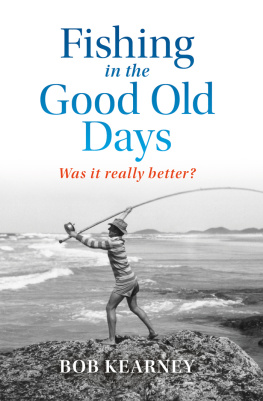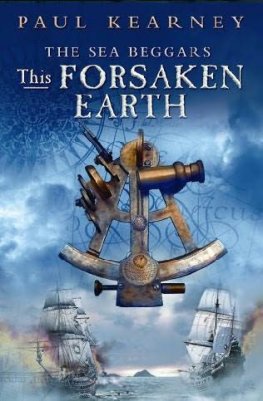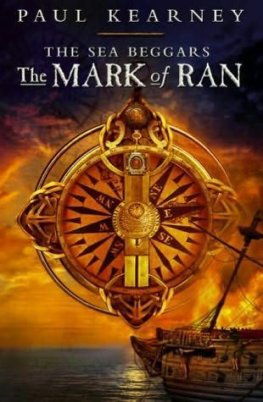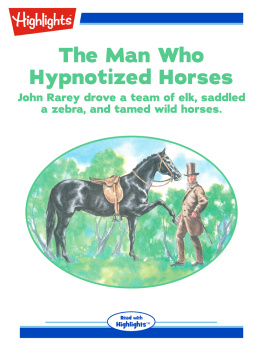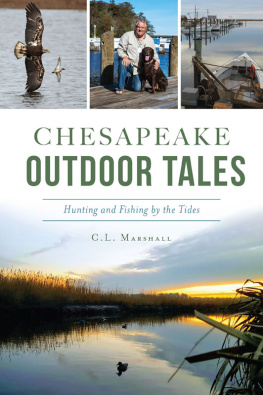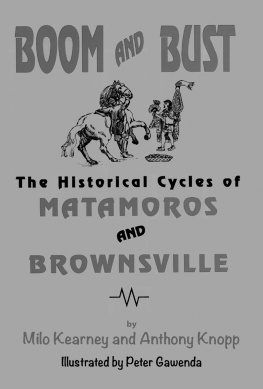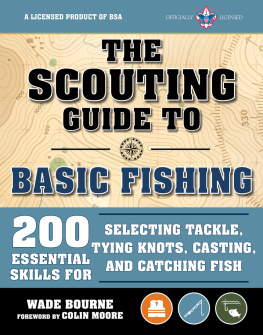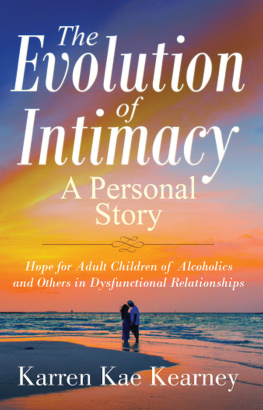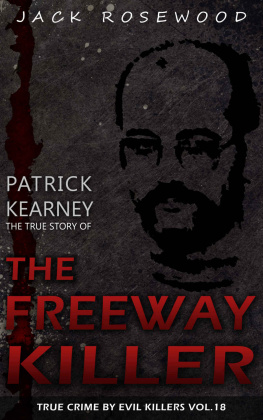Bob Kearney - Fishing in the Good Old Days
Here you can read online Bob Kearney - Fishing in the Good Old Days full text of the book (entire story) in english for free. Download pdf and epub, get meaning, cover and reviews about this ebook. year: 2022, publisher: MelbourneUP, genre: Detective and thriller. Description of the work, (preface) as well as reviews are available. Best literature library LitArk.com created for fans of good reading and offers a wide selection of genres:
Romance novel
Science fiction
Adventure
Detective
Science
History
Home and family
Prose
Art
Politics
Computer
Non-fiction
Religion
Business
Children
Humor
Choose a favorite category and find really read worthwhile books. Enjoy immersion in the world of imagination, feel the emotions of the characters or learn something new for yourself, make an fascinating discovery.
- Book:Fishing in the Good Old Days
- Author:
- Publisher:MelbourneUP
- Genre:
- Year:2022
- Rating:3 / 5
- Favourites:Add to favourites
- Your mark:
- 60
- 1
- 2
- 3
- 4
- 5
Fishing in the Good Old Days: summary, description and annotation
We offer to read an annotation, description, summary or preface (depends on what the author of the book "Fishing in the Good Old Days" wrote himself). If you haven't found the necessary information about the book — write in the comments, we will try to find it.
Fishing in the Good Old Days — read online for free the complete book (whole text) full work
Below is the text of the book, divided by pages. System saving the place of the last page read, allows you to conveniently read the book "Fishing in the Good Old Days" online for free, without having to search again every time where you left off. Put a bookmark, and you can go to the page where you finished reading at any time.
Font size:
Interval:
Bookmark:

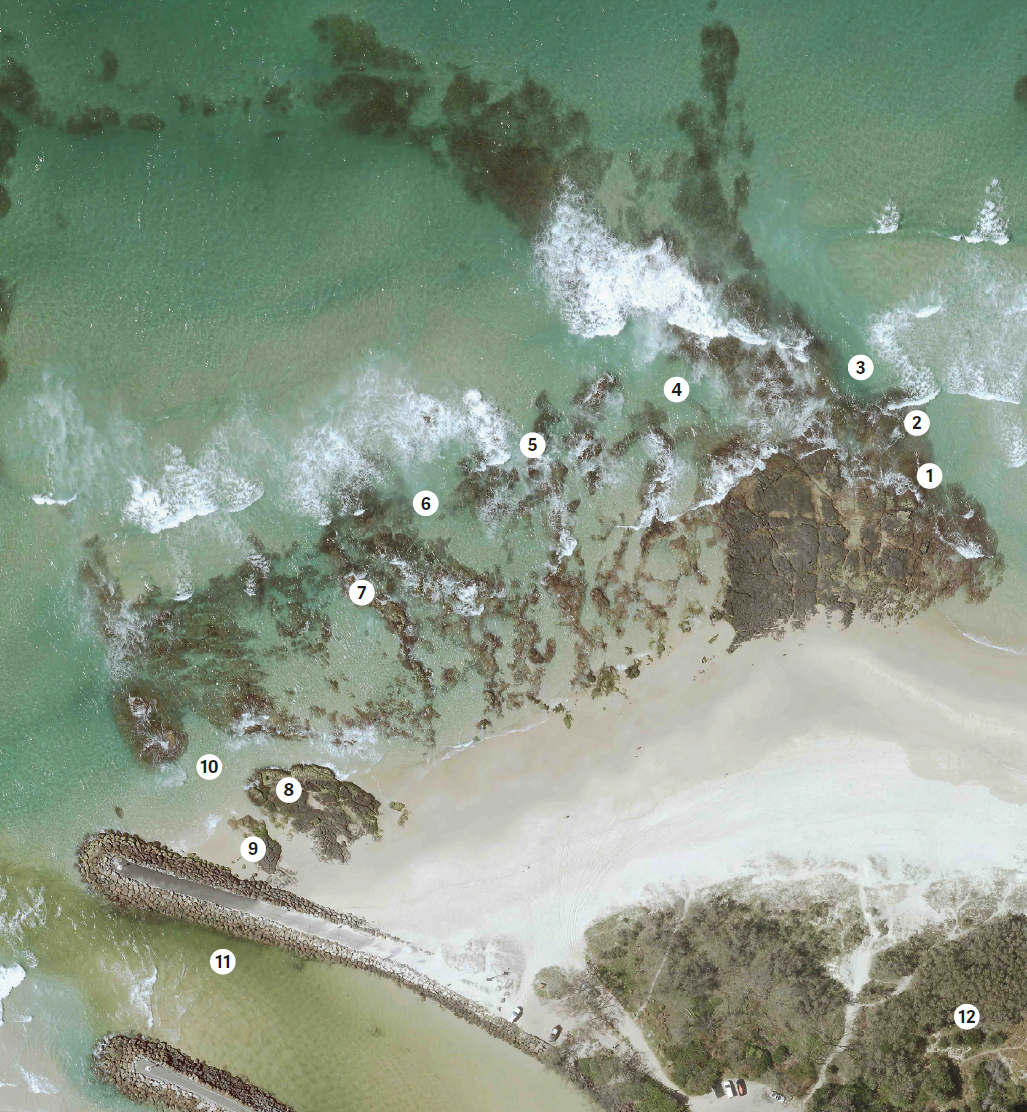
Aerial photo of what was left of the Kingscliff Rocks in 2018. A prevailing feature of The Rocks is that they have always been almost totally intertidal, with some of the platform episodically covered in sand. The tremendous build-up of sand following the construction of the training walls at the mouth of Cudgen Creek has, however, made sand cover of a great deal of the rocks permanent. Comparison with the good old days is striking. Many of the old locations, such as the iconic Round Rock, Snapper Hole, The Ledge and The Bream Hole are hardly recognisable, but a few others, such as The Alley, have remained in reasonable condition, for the moment at least.
The South End
Snapper Rock
Snapper Hole
The Alley
Hill 60
The Middle
Drummer Rock
The Ledge
Round Rock (what is left of it)
The Bream Hole
No Hopers (where it use to be)
The rock described at the conclusion of is under sand about 80 metres to the right of this point
Fishing
in the
Good Old Days
in the
Good Old Days
Was it really better?
BOB KEARNEY

MELBOURNE UNIVERSITY PRESS
An imprint of Melbourne University Publishing Limited
Level 1, 715 Swanston Street, Carlton, Victoria 3053, Australia
www.mup.com.au

First published 2022
Text Bob Kearney, 2022
Images various contributors, various dates
Design and typography Melbourne University Publishing Limited, 2022
This book is copyright. Apart from any use permitted under the Copyright Act 1968 and subsequent amendments, no part may be reproduced, stored in a retrieval system or transmitted by any means or process whatsoever without the prior written permission of the publishers.
Every attempt has been made to locate the copyright holders for material quoted in this book. Any person or organisation that may have been overlooked or misattributed may contact the publisher.
Cover design by Philip Campbell Design
Typeset by Megan Ellis
Cover: Casting on The South End on a low spring tide. There would have been ample depth of water for jewies up to an hour or two earlier, if the mullet were running. Photo by Allan Gynther.
Printed in Australia by McPhersons Printing Group

9780522878349 (paperback)
9780522878356 (ebook)
Questions, such as Why was fishing considered to be better in the good old days? underpin much of this book; some recur throughout. The first is: Why write a book like this? I decided to do so when I realised how much I enjoyed the stories my father, Jack Kearney, and several of his mates would tell of fishing in the good old days. It wasnt just the descriptions of catching fish that captured me; the rate at which things were changing as more people used our coastal environment intrigued me, even then. Naturally these stories were dominated by events on days or nights when it all came together. Stories about the days that were uneventful, and nothing was caught, do not hold an audience. Nobody remembers them anyway. There is always a bias towards what was good about days gone by.
I enjoyed all of Dads stories and their messages, many of them immensely. The more detail he provided of circumstances and events, the more I lapped them up. He was an excellent raconteur, as were all of his ten siblings. His abilities in this field were honed to an incredible level by being a publican in a NSW country town, Murwillumbah, in the days when conversing with your clients at whatever level they chose was a prerequisite for business success. He and his siblings were brought up in hotels.
As my father aged, he tended to repeat some of his fishing stories too frequently for my brother John. John was a good fisherman, but not an addict like me. I never tired of Dad telling his stories, particularly the ones he found special.
When my father passed away in 1998, I realised that my library of the fishing stories I loved was gone. I had not recorded any of them. Dad had not written any of them down. I hope this book makes it easier for my children and grandchildren to remember some that I found special, including even a few my father treasured. I also hope that by blending fishing experiences with the basic principles of fisheries and environmental science I can provoke some readers to think a little more broadly about what will affect the quality of their future fishing experiences, and even those of their grandchildren.
I know my fishing experiences have greatly benefited my understanding of fisheries and environmental management. I believe my science experience has helped my fishing. Questioning the science of fisheries assessment and why we do not understand more about fish behaviour has at the very least helped pass the time when nothing was biting.
I am most grateful for the privilege of a lengthy university education, predominantly at taxpayer expense. The last four years allowed me to work full time on fish and things fishy. Then for fifty years I had the great pleasure of researching and managing fisheries in many countries. In combination, these qualifications and experiences have given me insight into the science of fisheries assessments and what determines how much fish can be taken from a system without over-stepping. I have been reminded frequently by colleagues how fortunate I have been to have had the opportunity to combine my passion for fish and fishing with my career. They have used this to stress that I have a responsibility to record my experiences and conclusions. This book represents my acceptance of that responsibility.
For all my university training and laboratory and office research I believe I have learnt more about the way fish behave and their reactions to changes in habitat and climate from being a fisherman, both commercial and recreational. I was, however, as a university student formally taught how to gather and process information objectively. As a scientist and academic the need to question even the obvious was repeatedly reinforced. I have, to the best of my ability, applied these principles to the contents of this book.
I have tried to combine my fishing and professional experiences with what I have learnt from textbooks and scientific papers and from writing a multitude of government submissions on fisheries and environmental management. In the story-telling I have concentrated on my recall of what actually happened, and the expressions individuals used to describe their involvement. My interpretations of what has changed over the years, and why, are more subjective. They are influenced by analyses of the evidence, with the evidence gathered while fishing dominating.
The geographical focus in this book is the far north coast of NSW, particularly around the township of Kingscliff, where I spent most of my childhood and where I learnt to become a fisherman. My good old days began in the late 1950s and most of the events described in detail occurred in the 1960s.
Font size:
Interval:
Bookmark:
Similar books «Fishing in the Good Old Days»
Look at similar books to Fishing in the Good Old Days. We have selected literature similar in name and meaning in the hope of providing readers with more options to find new, interesting, not yet read works.
Discussion, reviews of the book Fishing in the Good Old Days and just readers' own opinions. Leave your comments, write what you think about the work, its meaning or the main characters. Specify what exactly you liked and what you didn't like, and why you think so.

